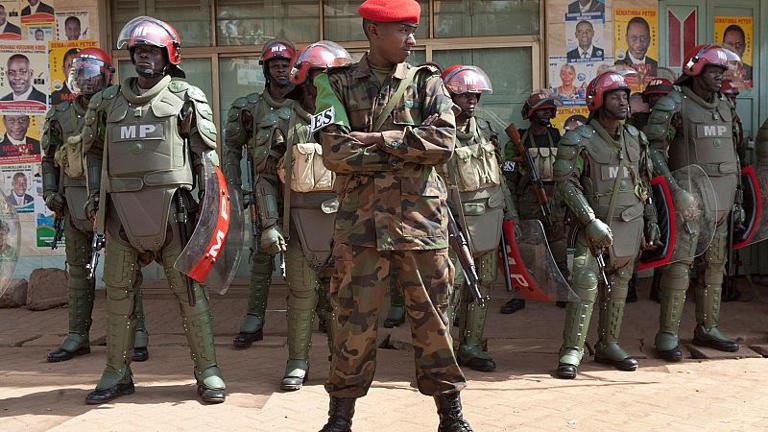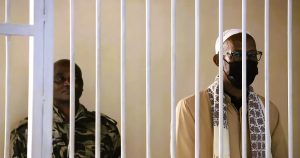Ugandan lawmakers bring back military courts’ ability to try civilians
3 min read
Ugandan lawmakers reignite controversy by reintroducing military court trials for civilians ahead of 2026 elections.
Uganda’s parliament has passed a controversial bill that reauthorizes military courts to try civilians, reigniting fears over democratic backsliding just two years before the country’s next general election.
The bill, backed by President Yoweri Museveni’s government, was passed on Tuesday despite strong criticism from opposition politicians, human rights activists, and legal experts. Critics view the move as a serious threat to civil liberties and judicial independence.
The legislation comes in response to a Supreme Court ruling earlier this year, which declared that civilians should not be subject to military court-martials. The court questioned whether military officers—who may lack legal training—have the competence to fairly try civilians.
In defiance of that judgment, the new bill explicitly allows civilians to be tried by military courts if their alleged crimes are committed “in support of or in association with persons subject to military law.” The bill also attempts to address some of the Supreme Court’s concerns by mandating that military court presiding officers must be legally qualified.
However, opposition figures walked out of parliament in protest, calling the bill unconstitutional. Rights groups have also condemned the decision as dangerous and undemocratic.
“This is an attempt to unconstitutionally grant judicial powers reserved for superior courts to subordinate military courts,” said Chapter Four, a Uganda-based civil liberties organization. “Military courts have a specific mandate to handle military disciplinary issues—not to try civilians.”
Amnesty International echoed the warning, describing the legislation as a tool that could be used to “entrench repression ahead of the 2026 elections.” Human rights advocates fear it could be used to target opposition voices, journalists, and activists in the run-up to the national vote.
President Yoweri Museveni, who has ruled Uganda since 1986, is widely expected to sign the bill into law within days. After the Supreme Court’s decision to disband military court-martials for civilians, Museveni openly criticized the judiciary, stating, “The country is not governed by the judges.”
His government swiftly moved to reintroduce legislation that would maintain the military courts’ authority, a move seen by many as a rejection of judicial oversight and an affirmation of military influence in civilian matters.
Observers believe this legislative push is also linked to Uganda’s political succession concerns. Museveni, now 80 years old, has ruled the country for nearly four decades and has not clearly named a successor. Many believe he is grooming his son, General Muhoozi Kainerugaba, the current army commander, to take over. Kainerugaba has expressed interest in succeeding his father and has gained increasing visibility in political and military circles.
Speculation about a future transition of power—possibly a bloodless handover to Kainerugaba—has fueled concerns about rising authoritarianism in Uganda. The reintroduction of military court powers may be part of a broader strategy to suppress dissent and ensure a controlled political environment as the 2026 elections approach.
Although the bill includes provisions that presiding officers must be trained in law, critics argue that this is not enough to guarantee fair trials. They point out that military courts, by their very nature, are designed for internal discipline and are not bound by the same procedures and transparency required in civilian courts.
Uganda’s National Resistance Movement (NRM), the ruling party since Museveni took power, has defended the bill as necessary for national security and the fight against terrorism and sabotage. But rights groups counter that vague references to “support” or “association” with military personnel leave too much room for abuse, enabling the targeting of political opponents under the guise of security.
As the bill awaits Museveni’s signature, legal experts and civil society groups are preparing for possible constitutional challenges, although some fear the judiciary may come under increasing pressure from the executive.
With Uganda’s next elections scheduled for January 2026, the new law adds a tense dimension to the political landscape—raising questions about fairness, freedom, and the future of democracy in the country.






